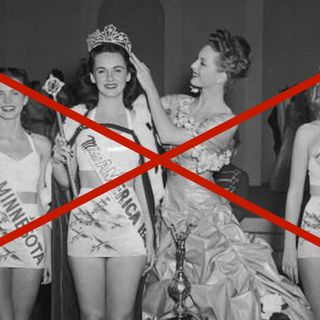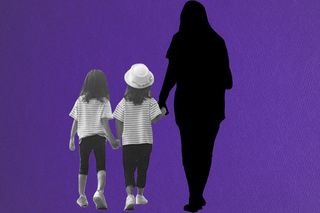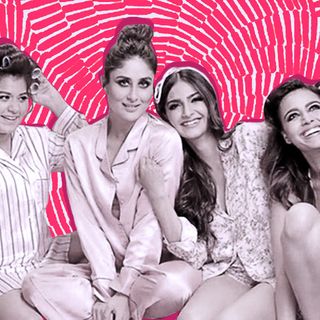
“Because I Am a Mother, I Know How it Feels if Anything Happens to a Child.”
A nanny from Karnataka shares her story.

I was born in Karnataka, somewhere between Mangalore and Goa. I studied in a Kannada language school. I couldn’t finish my high school because there were a lot of financial problems in the house, so I had to dump my school and come to Bombay to work. I was about 15.
I came to Bombay. I have relatives here, so I stayed with them, and I learned Hindi. I worked for a Parsi family for a year. It was not a nanny job, just cleaning and housekeeping work. I wanted to go and work in a foreign country where I could earn a bigger amount, to help my parents, my brothers and sisters and all. I told one of my cousins to try for me. She said, “I can get you to an agent.” And that’s how I went to Singapore when I was 17 years old.
There, I was supposed to work as a nanny, that’s why I was called. But then the lady who was supposed to hire me, she wanted somebody very urgently, so she couldn’t wait till the day I was going to be there. So she got someone else from the agent, and I was transferred to another family. That was a Sindhi family, and they needed somebody to be with the children, not take care of them. The children were not very small; the daughter was a teenager, and the son was about nine years old. That’s where I ended up working for 12 years.
It was very much like a family. I was treated like a family member, very much like their daughter. Their children and myself had only four years of age difference. So we really got along very well. I was very happy working there. I worked for the same family for 12 years. I didn’t go anywhere else. I learned English [from them], and some basic computer knowledge.
That employer, she had opened a travel agency. She had her own business, so she told me to help her around with the computer work and all. Part-time. And then she would pay me extra for that. In between I had two trips back home. I came back twice for a one and a half month holiday.
After 12 years, I moved back to India, I got married. It was a love marriage. My husband is from the same place where I was born. We were from the same village, same colony, I would say. We would go to the same church. When we were small, we had no idea who we were. After the age of 17, 18, you start to notice people and like people, and I liked him. We didn’t date or anything. We just wrote letters to each other while we were apart. He would write me letters, I would write him letters from Singapore. Sometimes phone calls. Finally, we decided to get married.
[I left Singapore to get married then because] I had three more siblings who wanted to get married. You know what it is in India. When the elder ones are still to be married, you can’t get the younger ones married. Everyone was telling me, “You should come and get married.”
We bought a house, myself and my husband, we bought a house in Mumbai using the money I had earned. I got married at the age of 29. I got my [first] son at the age of 30, in 2005. From then on, I was a full-time mom. Then my second son was born in 2007. I didn’t want to have a huge age gap between them. I wanted them to play together, grow together.
I had gone to Singapore just to help [my family] out. While I was there for 12 years, I got my elder sisters married. I took care of her marriage expenses. I helped my father; he was a farmer. He had rice fields, we used to grow rice, sugar cane. He had two paralytic attacks, after that he couldn’t do any farm work. So I told him not to do any work, I will support him. And our house was not very strong, it was built with chuna [limestone]. If the walls got wet, the whole house could collapse. Because of a 1992 flood, my house started breaking. So while I was in Singapore, I renovated the whole house. My younger sister also, I told my father, “Before I get married, I want to make sure that everything is arranged when the time comes.”
I’m proud of what I have done, but I’m sorry at times. I wish I could study further. I wish I could continue my studies, but then I’m also very happy that I am doing something different. Not everybody can do this; I take care of small children. I think I take more experience from my children. When I got my two boys, I learned how to take care of children, actually, otherwise I wouldn’t know.
I was working in Dadar at a marketing agency after my elder son was born. Because I had that computer experience, somebody gave my reference. I worked there for nearly one year, and then I left because I was expecting my second son. My boss said, “We would love to have you back [after you give birth].”
After I gave birth, he called me three times. But then I wasn’t ready, because I didn’t want to leave my children with somebody I don’t know. I just felt that I can earn money anytime, but the time, the precious time that I would be giving my children, I will never be able to get that if I leave them and go. And who knows how people would take care of them, I couldn’t trust to leave a baby.
It must be hard for [moms] to trust me to take care of their children. Now that I think about that, I could have trusted somebody. You should learn to trust people. But with the people where I live, I have seen how they behave with children. What if they don’t feed my baby on time? What if they just let him cry? What if they don’t clean them up, and what if they fall and they don’t tell me?
Because I am a mother, I know how it feels if anything happens to a child, I know how that person will feel if anything happens to their children, if I don’t take good care of their children. It’s always in my mind that they’re my duty and they’re my responsibility. Children are children, whether they’re mine, yours, anybody’s. I make sure that even if I don’t get to eat my lunch, dinner, whatever, I don’t care, but I make sure that the child is safe. I have to do my duty.
It’s been two years since I started working again as a nanny, and since then I have only taken care of one baby. I started taking care of that baby when she was born. Sometimes [the parents] had to attend events or go outside somewhere, they would leave the baby in my hands. They would trust me, that I will feed her, I will put her to sleep, I will give her a bath. I used to [be allowed] do all that because I kept them posted; I kept telling them, “This is what happened today, this is what time she woke up.” You know, every update was given.
That baby was very close to me, and I loved her very much, of course. When you start taking care of a baby girl or boy at a very young age, like, day one, day two, you automatically feel that. I don’t know, as a mother you just feel for that child. Like, I want to take care of this child as if it were my own. Children are a form of god, no matter whose children they are.
This interview has been condensed and edited for clarity. As told to Urvija Banerji.
The Home Makers is a series that explores the untold stories of the home, the experiences of the people who complete and care for it. These accounts are often anonymous in order to protect the privacy and livelihoods of individuals who share intimate details of their work and lives.
Related


Veere Di Wedding Is Nothing You Haven’t Seen Before
